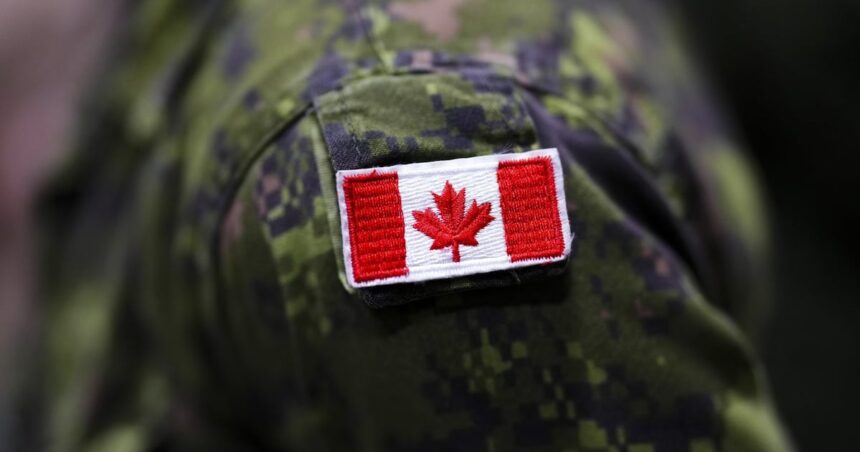The Facebook page appeared innocuous at first glance. A group for current and former military members to share experiences and memories. But scrolling deeper revealed something far more disturbing: memes degrading women in uniform, racist comments about Indigenous members, and threats targeting LGBTQ+ personnel.
Last week, military police launched a formal investigation into this private Facebook group after whistleblowers came forward with screenshots of content that violates both Canadian Armed Forces (CAF) conduct policies and potentially Canadian law.
“We’re examining posts dating back at least 18 months that contain material which has no place in our military community,” said Major Élise Gauthier, spokesperson for the Canadian Forces National Investigation Service. “These allegations are being taken extremely seriously.”
The group, which had approximately 8,000 members before being shut down, required military credentials to join but operated outside official CAF channels. According to documents I’ve reviewed, members included personnel from nearly every branch of service, from junior enlisted to several senior officers.
Former Master Corporal Jasmine Rodriguez was among those who reported the page. “I joined thinking it would be about camaraderie. Instead, I found people I served with posting vile comments about women and minorities in uniform,” she told me. “When I objected, I became a target myself.”
The investigation comes amid ongoing efforts to address systemic discrimination within Canada’s military. Last year, the Department of National Defence published its progress report on addressing harmful conduct, highlighting improvements but acknowledging significant challenges remain.
Michel Drapeau, a retired colonel and military law expert at the University of Ottawa, explains the legal implications extend beyond military discipline. “Members posting this content could face charges under the National Defence Act for conduct unbecoming, but depending on severity, we might also see Criminal Code charges for hate speech or uttering threats.”
I examined screenshots provided by sources showing posts that used racial slurs to describe Indigenous members and suggested women received promotions through sexual favors. Other posts contained homophobic memes and discussions about how to make life difficult for transgender personnel.
The Canadian Human Rights Commission has been monitoring similar incidents across institutional contexts. Commissioner Marie-Claude Landry noted in a recent statement that “online conduct that creates a poisoned environment for protected groups constitutes discrimination even when it occurs in seemingly private digital spaces.”
For Sergeant (Retired) Omar Williams, who served 22 years before retiring in 2021, the revelations weren’t surprising. “Many of us have experienced this toxicity firsthand. The difference now is there’s finally some accountability,” he said. “During my time, complaints about discrimination were often brushed aside.”
The Department of National Defence declined to provide specifics about individual posts under investigation but confirmed the inquiry would examine whether supervisory personnel were aware of or participated in the group. Lieutenant-General Jennie Carignan, Chief of Professional Conduct and Culture, issued a statement emphasizing that “online behavior reflects on the institution and must meet the same standards we expect in physical workplaces.”
This investigation emerges against a backdrop of previous scandals. In 2021, several senior military leaders faced allegations of sexual misconduct, triggering a crisis of confidence in CAF leadership. The subsequent Arbour Report made 48 recommendations to address sexual misconduct and discrimination.
The Facebook page investigation also highlights challenges military organizations face policing conduct in digital spaces. The Defence Team Survey from 2023 revealed that 41% of respondents had witnessed or experienced discrimination online from colleagues, yet only 13% reported these incidents.
Dr. Aisha Ahmad, security expert at the University of Toronto, points to a deeper issue. “Military culture worldwide struggles with social media boundaries. Personnel often feel their private online lives should remain separate from professional oversight, but hate speech impacts unit cohesion regardless of where it occurs.”
Veterans Affairs Minister Lawrence MacAulay addressed the investigation during a press conference yesterday. “Our government is committed to ensuring every person who serves is treated with dignity. This behavior dishonors the uniform and everything our military stands for.”
For affected members like Rodriguez, the investigation represents a potential turning point. “I left partly because of this toxic environment. Maybe if the military finally cleans house, others won’t have to make that choice.”
The investigation is expected to continue for several months, with potential disciplinary actions ranging from remedial measures to release from service and possible criminal charges. Military police have established a dedicated reporting channel for personnel with information about similar online conduct.
As Canada’s military works to rebuild public trust and internal morale, this case demonstrates that the battle against discrimination extends beyond physical bases and into digital spaces where the values of the institution are either upheld or undermined, one post at a time.






